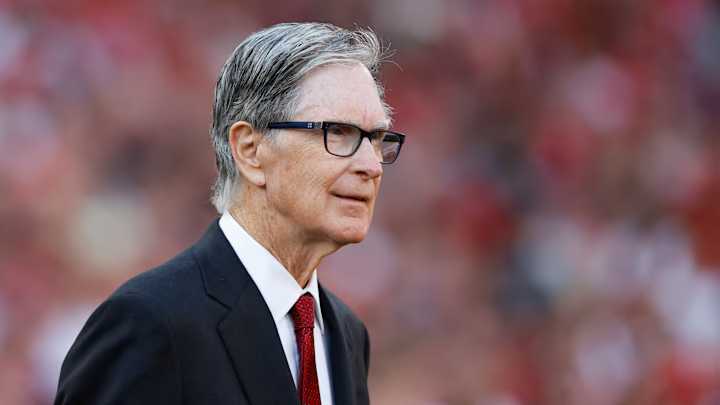Boston Red Sox fans have been dissatisfied with the team the front office has fielded in recent seasons. Owner John Henry's recent interview with Financial Times didn't help matters.
His apathy toward his flagship club was on show, and it has been since at least 2020. Henry and Fenway Sports Group have been hung up on selling "the Fenway Experience" instead of the postseason caliber ballclub that's been promised to fans year in and year out.
Despite the park not being as packed as it used to be, the Fenway Experience counts for something. Even Boston fans who have been to Fenway countless times are enamored by the park.
But part of the Fenway Experience is the passionate Red Sox fanbase in the crowd. This year, Sox fans have been few and far between — at least, compared to previous seasons.
Making as much money as possible has been Henry's bottom line since FSG bought the Pittsburgh Penguins in 2020. The Red Sox dished Mookie Betts and David Price to the Dodgers and shifted to a small-market mentality. He used Boston sports fans' passion to do it.
"I think people [with the organization] are legitimately embarrassed"@jtomase paints a pretty bleak picture about the state of the Red Sox so far during Spring Training 😨 pic.twitter.com/Pynoa0t0K6
— NBC Sports Boston (@NBCSBoston) February 17, 2024
The Fenway Faithful fill the seats every day to watch their favorite ballclub, whether they're worth watching or not. And that's exactly what Henry is banking on.
Even after a four-year rebuild and broken promises from the front office, Red Sox fans spend their money on the team and get little to nothing in return. They've become a means to an end — Henry uses the Red Sox and Fenway Park to line his pockets to pursue his other interests like the billion-dollar stake in the PGA Tour FSG purchased last winter. Henry hired a new chief baseball officer and Tom Werner said "full throttle" to give the illusion of care just to throw it out the window when free agency began.
Red Sox Nation can force John Henry to spend by being as apathetic as he is
The front office's apathy affects the players as much as the fans, if not more. Rafael Devers spoke out about the Red Sox's needs at the start of spring training 2024. Years of players' careers have been wasted under an owner who doesn't care, and Devers is chief among them. The third baseman is posting the season of his life (so far) on a team of first-year big leaguers and low-tier free agents.
Henry gets away with treating the Red Sox like a small market team because he knows the seats at Fenway Park will still be filled, or close to it, each day. Money is his biggest motivator, which gives fans the upper hand — if you're dissatisfied with the way the Red Sox are run, don't reward FSG by spending on the team.
For some of Red Sox Nation, that's easier said than done. Some are afraid to lose their season tickets in their favorite seats, and some go to games to support the players. But the best way to support the players is to give ownership a reason to help the team be better, and there's no reason for FSG to field a better team if the seats at Fenway will be full every day, regardless.
Fans can force Henry and FSG to spend on the Red Sox as the front office has promised for years. Unfortunately, it's come to this, but avoiding Red Sox games may be the best way to get ownership to finally pay attention.
